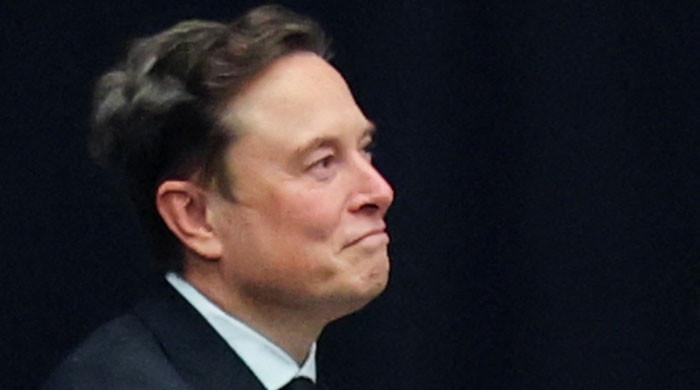
Judge Denies Elon Musk's Request to Move SEC Twitter Case to Texas: What It Means for the Tech Titan
In a significant legal development, a federal judge in Washington, D.C., has ruled against Tesla CEO Elon Musk's request to transfer a Securities and Exchange Commission (SEC) lawsuit from the capital to Texas. This case revolves around allegations concerning Musk's delayed disclosure of his stake in Twitter and has far-reaching implications for both Musk and the broader tech industry.
Background on the SEC Lawsuit
The SEC filed a lawsuit against Musk, claiming that he failed to promptly disclose his purchase of a substantial share of Twitter. Under federal securities laws, investors are required to report their holdings when they exceed a certain threshold, a regulation intended to ensure transparency in the stock market. Musk's alleged failure to comply with these regulations has raised questions not only about his business practices but also about accountability among high-profile executives in the tech sector.
Why Musk Wanted the Case Moved to Texas
Elon Musk sought to move the case to Texas for several reasons. One primary argument was that the legal atmosphere in Texas is perceived to be more favorable to him. Musk has established significant personal and business ties to the state, particularly through his ventures with Tesla and SpaceX. Furthermore, Musk's legal team argued that the jury pool in Texas would be less influenced by the media scrutiny and political climate surrounding him in Washington, D.C.
However, the judge ruled that the case should remain in Washington, citing the importance of maintaining the integrity of the judicial process and the relevance of the case to the SEC's enforcement of federal securities laws.
Implications of the Ruling
Impact on Elon Musk
This ruling is a setback for Musk, who has cultivated a reputation for challenging regulatory bodies and often positioning himself as a champion of entrepreneurial freedom. Remaining in Washington, D.C., means that Musk will continue to face the scrutiny of a court that is closely tied to federal regulations and oversight. The case's outcome could have financial ramifications for Musk and his companies, particularly if the court finds him liable for the alleged violations.
Broader Consequences for the Tech Industry
The decision also sets a precedent for how similar cases might be handled in the future. If high-profile executives believe they can evade scrutiny by shifting legal proceedings to more favorable jurisdictions, it could undermine the regulatory framework established to protect investors. This ruling serves as a reminder that compliance with securities regulations is crucial, regardless of one's status or the perceived power of one's business.
Legal Perspectives on the Case
The Role of the SEC
The SEC plays a vital role in maintaining market integrity and protecting investors. This case underscores the importance of timely disclosures, especially by influential figures like Musk, whose actions can significantly impact stock prices and market sentiment. The SEC's aggressive stance in pursuing this lawsuit reflects its commitment to enforcing compliance among all market participants, regardless of their prominence.
Potential Outcomes
If the court finds Musk liable for his delayed disclosures, he could face substantial penalties, including fines and increased scrutiny of his business practices. Additionally, this case could lead to stricter regulations governing disclosures by high-profile investors, impacting how tech executives navigate their financial dealings in the future.
Conclusion
The denial of Elon Musk's request to shift the SEC lawsuit to Texas marks a pivotal moment in a case that could reshape the landscape of corporate accountability in the tech industry. As the legal proceedings continue, all eyes will be on Musk and the SEC, watching closely for how the outcome may influence future regulatory practices and the behavior of high-profile executives. For investors and the tech community, this case serves as a critical reminder of the importance of transparency and adherence to securities laws, reinforcing the notion that no one is above the law, regardless of their wealth or influence.FAQs
What is the SEC lawsuit against Elon Musk about?
The SEC lawsuit against Elon Musk pertains to allegations that he failed to promptly disclose his significant stake in Twitter, violating federal securities laws designed to ensure transparency in the market.Why did Elon Musk want to move the case to Texas?
Musk aimed to move the case to Texas, believing that the legal environment there would be more favorable to him and that a Texas jury would be less influenced by media scrutiny and public opinion.What are the potential consequences for Musk if he loses the case?
If Musk loses the case, he could face financial penalties, including fines, and increased scrutiny of his business practices. A ruling against him could also set a precedent for stricter regulations on disclosures by high-profile investors.How does this case impact the tech industry?
This case highlights the importance of compliance with securities regulations among tech executives. A ruling in favor of the SEC could reinforce the need for transparency and accountability in the tech sector, affecting how executives manage their investments and disclosures.
Tags
Technology
